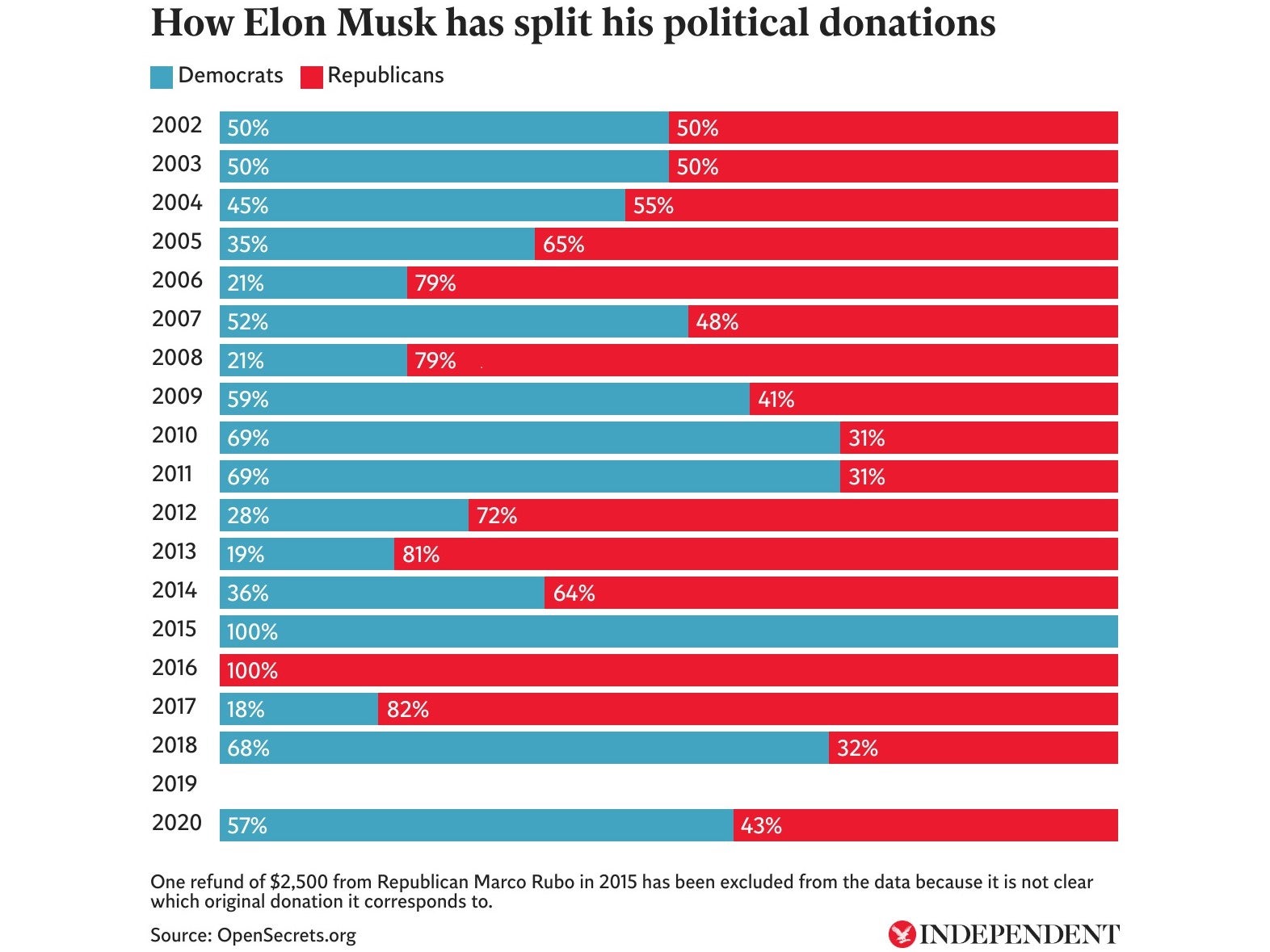Why does Elon Musk really want Twitter?
The world’s wealthiest person wants to create a haven for ‘free speech’
Elon Musk is now on the brink of taking over Twitter outright.
The world’s richest person – and eighth most popular Twitter user – plans to make the platform fully private in order to restore its commitment to what he terms “free speech”. But his offer, which Twitter gave the green light on Monday, raises as many questions as it does answers.
Among them: why does he want to take it over? Where’s the money coming from? Would a sale make shareholders happy? And what would the social platform look like if he succeeds?
Why is Elon Musk interested in Twitter?
Ostensibly because the service, he says, isn't living up to its potential as a “platform for free speech.”
Musk insists that he's not interested in making money from Twitter and on Thursday said his motivation sprang from the realisation that “having a public platform that is maximally trusted and broadly inclusive is extremely important to the future of civilisation”.
Twitter, like other social media platforms, suspends accounts for violating content standards, including on violence, hate speech or harmful misinformation. Its suspension of Donald Trump angered the former US president’s followers.

Musk has described himself as a “free speech absolutist” – but he has blocked Twitter users who question or disagree with him. Regulators have also accused his car company, Tesla, of retaliating against Black workers who spoke up about discrimination.
Where will Elon Musk get the funds to buy Twitter?
Musk may be the richest person on the planet, but most of his wealth is tied up in Tesla stock (he owns 17 per cent of the company) and his stake in the privately held space firm SpaceX.
He claims to have significant crypto holdings, mostly bitcoin, Ethereum (ETH) and some Dogecoin, but he also says he plans to “HODL” (hold on for dear life) and not sell his cryptocurrency.
During an on-stage interview at the TED 2022 conference earlier this month, Musk noted vaguely that he has “sufficient assets” to complete the deal, adding, “I can do it if possible”.
A securities filing last week revealed he has raised $22.5bn from Morgan Stanley Senior Funding to finance the bid, and will pay the rest by selling equity.
Will Twitter shareholders be happy with the takeover?
Twitter stock surged in pre-market trading on Monday morning in anticipation of the successful bid. The shares have traded above $70 in the past 12 months and peaked at $80.75 in February 2021, though remain much lower than the price offered by Musk.
There has been executive turnover since co-founder Jack Dorsey’s departure in November left Twitter with a new CEO, Parag Agrawal, whose initial actions have involved internal reorganisations. There have not been any major changes to Twitter, which, despite its outsized influence due to high-profile celebrity and politician posters, as well as a devoted base of journalists, has fewer users than social media rivals like Facebook and TikTok. Musk himself is a huge user, with more than 81 million followers.
Dorsey, still a major shareholder, said after the deal was announced that he supported it.
How might Elon Musk remake Twitter?
It's hard to know with Musk, and even trying to game out this hypothetical might be taking the man too seriously. By saying Twitter is not living up to its potential to be a “platform for free speech”, he seems to be saying he would scale back content moderation. This could see a return for those banned by Twitter in the past, potentially even seeing Donald Trump reinstated.
He will also crackdown on crypto spam bots, which have plagued the platform in recent years, and has proposed dropping ads from the service – ads are how Twitter makes money – and making its San Francisco headquarters into a homeless shelter.
A recent poll relating to an edit button could see that introduced for all users.
Why are some people concerned about Elon Musk taking over Twitter?
Social media companies struggle to contain misinformation and hate speech. Musk, whose tweets can lead online bullies to swarm his critics online, does not seem keen on content moderation.
“Regulators worldwide will be wincing at the potential free speech implications should Musk’s takeover bid succeed,” said GlobalData analyst Rachel Foster-Jones. “Musk is clearly serious about promoting free speech for the benefit of democracy, but the line between free speech and hate speech or misinformation is becoming increasingly muddied, and attempts to change Twitter could easily lead to these issues spiraling out of control.”
In his talk with Anderson, Musk said that Twitter is “bound by the laws of the country it operates in, so obviously there are some limitations on free speech in the US and of course Twitter would have to abide by those rules.” But he said it was “quite dangerous” to have “tweets be mysteriously promoted and demoted” and having a “black-box algorithm”.
Additional reporting from agencies
Join our commenting forum
Join thought-provoking conversations, follow other Independent readers and see their replies
Comments
Bookmark popover
Removed from bookmarks